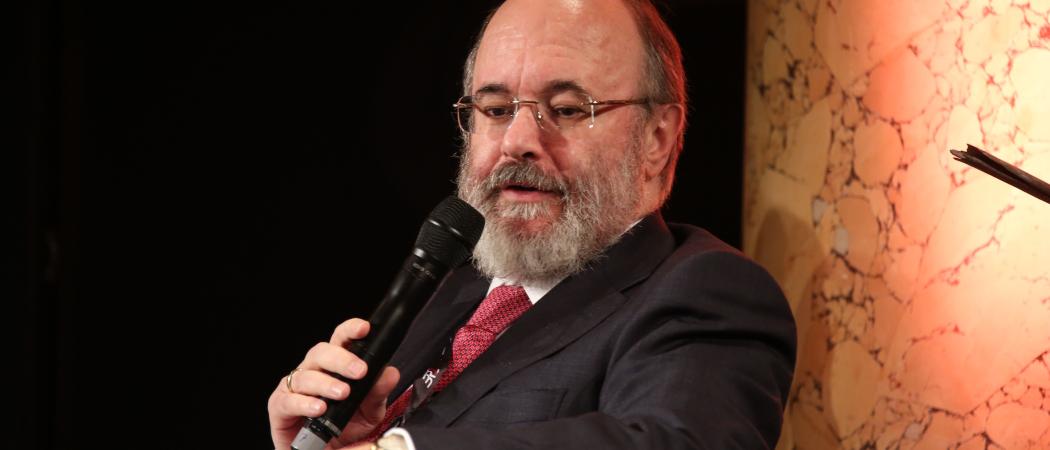Fears that the EU will give up its involvement in health won’t go away. A big concern is that the next president of the Commission “might abolish” its responsibilities, says Austria’s director-general for health

The future role of the EU in health policy has been thrown into further doubt, with the director general of Austria’s ministry of health saying he believes it could be in jeopardy.
“My biggest concern is that the next president of the Commission could abolish EU health responsibilities,” said Clemens Martin Auer, speaking at a conference on e-health in Tallinn on Tuesday.
Rumours of a rollback of EU involvement in health started flying in March after the Commission published a white paper, ‘The Future of Europe’, in which one scenario depicts public health as an area of "limited added value."
This signal has left EU watchers pondering the future extent of Brussels’ reach in health policy. A persistent rumour is that the EU’s health directorate, DG Sante, could be closed and its responsibilities redistributed among other Commission departments.
Asked by Science|Business in June if there was any discussion around hollowing out or dropping EU responsibilities for health, the Commission’s director general for health and food safety, Xavier Prats Monné, dismissed the idea.
“We play a big part in preventing and managing crises; food safety; innovation in e-health, and helping countries find out what parts of their health systems work best. Is there any discussion about DG Sante’s continued future? The answer is simply no,” Prats Monné said.
Clearly, the fear has not been extinguished however, with Auer feeling he needed to implore the audience of health professionals to start agitating for the Commission’s continuing role in health.
“If you have the slightest suspicion that some politician, nationally or at European level, might want to abolish the health dossier, please, raise your voice, protest it,” he said.
Limit on Brussels role
Auer’s counterpart in Sweden, Agneta Karlsson, told delegates health is an area that “is really important” to have on the EU agenda.
“But at the same time, there is no willingness in my country to give over any more responsibility to the EU level, that’s a fact. We can have wishes and aspirations but we have to listen to our people,” she said.
Divisions and delay in EU health policy clearly vex the Commissioner for health, Vytenis Andriukaitis, who talked animatedly about maintaining EU clout in the area. Any gain is painfully slow, he said.
“Do you know how long it took to get the cross-border health directive agreed on – it took ten years.
Ten years! We [have] big delays,” said Andriukaitis.
EU summit conclusions often refer to a growing role for the EU in health, but pledges by governments frequently go undelivered, according to Auer.
“We always talk about voluntary contributions to new rules, when I wish we’d talk about commitments,” he said.
Efforts to forge common approaches on topics such as cross-border e-health services repeatedly run into the sands of internal EU divisions, said Andriukaitis. “It’s always a mantra about subsidiarity – [this] is an important thing for a lot of people. And this creates a lot of problems.”
The Lithuanian Commissioner, a trained cardiac surgeon who took part in the first heart transplant operation in his country’s history before moving into politics, laments the lack of ambition and focus among member states and calls for more support.
“We all must agree on a very simple point: the Commission must be big on big issues and small on small issues. I ask you to be very vocal,” he told the room of health professionals. “Send messages to parliaments. The Commission is ready to move,” he said.
Brussels’ ability to show political leadership on health issues of concern such as ageing patients, the rising tide of chronic disease, and higher treatment costs, is limited by EU treaty, Andriukaitis noted. The Commission has broad powers in public health matters such as food safety, but limited competencies in medical services and healthcare.
And as Jevgeni Ossinovski, Estonia’s minister of health and labour pointed out, “There is no political will or impetus to change the EU treaty.”





 A unique international forum for public research organisations and companies to connect their external engagement with strategic interests around their R&D system.
A unique international forum for public research organisations and companies to connect their external engagement with strategic interests around their R&D system.